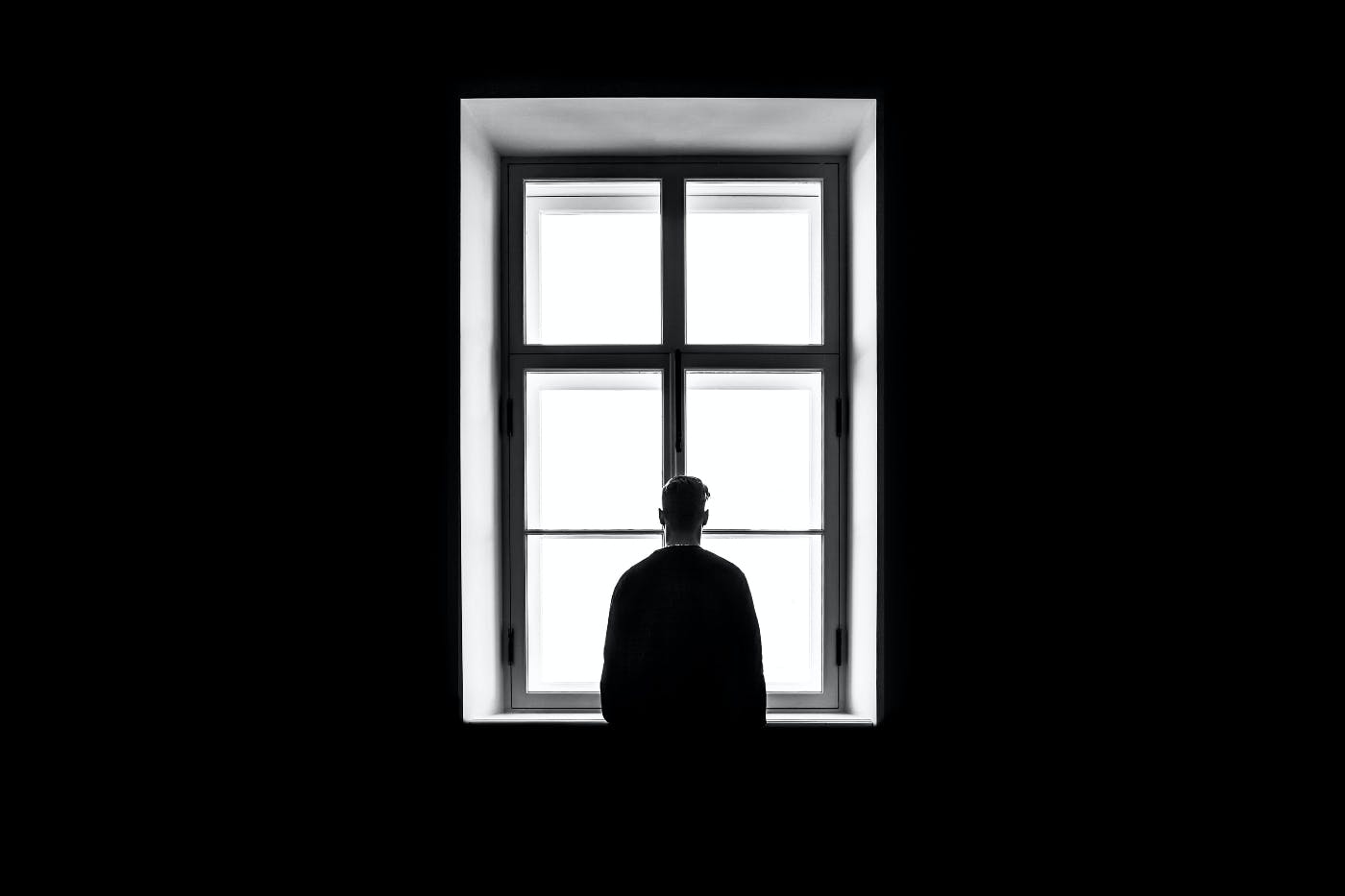
With “news” coming at us from our computers, smartphones, televisions, and online it is easy to see why so many people are getting depressed and feeling lost.
Back in my day, we bought our newspaper from the barefoot boy on the corner of the street, gave a quick glance while riding the cable car to work, and then used it to wrap our lunch the next day. Ah, the good ol’ days.
Of course, none of that is true; I’m not old enough to remember the newsies unless someone forces me to sit through that horrible musical offering. But I am a reader of newspapers and the news is bad like it’s never been before.
Also, not true; the news has been bad before. I mean, there was a time when the end of civilization was sitting among the coconut trees in Cuba. That was some bad news. We are not in a nascent stage of bad news, so why does it feel like we are?
One of the factors is that with social media, it feels like we have a million news sources, and none of them are telling the same story. This leads to doom scrolling and false narratives being pushed as real news. It’s difficult to know who to trust when seeking the truth and who is just pushing their personal or political agenda.
With “news” coming at us from our computers, smartphones, televisions, and online it is easy to see why so many people are getting depressed and feeling lost. This inundation of news feels mostly bad because, according to a study published in The Review of General Psychology, negative bias, which is a psychological effect that causes us to pay more attention to bad news than good. The study found that bad news is processed more thoroughly than good. We are built to seek out, listen to and believe bad news more than good news.
Well, there seems to be plenty of bad news and about a gagillion places to read, see, hear, and be overwhelmed by it. So what happens when the news gets to be too much? This article will examine how to protect your mental health when the news is too much to handle.
Consuming the News
Once, we just turned it off. We flipped the switch on the radio or the TV, and that was that, done no more news. Now, when you open your smartphone, you are given news stories. And with TikTok challenges and the unspoken need to stay current on every single thing that’s happening, or we look like we don’t care about what’s going on, it gets harder to step away from the news.
Whatever news does sneak into your day, it usually has a negative impact. There is a doubled edged sword of misery here; if you just grab headlines on the way to work or lunch, you get an incomplete picture of what’s being discussed, and since we’re psychologically drawn to bad news, we fill in the gaps with the worst possible news. We rarely look at a headline that scouts doom and gloom and think, no, that’s clickbait; the news is not that bad. In reality, we catch a headline and fill it in with the worst possible scenario.
Or depending on where you get your news, you may be subject to biased terribleness. Some news outlets play upon our desire for bad news and spin everything as bad. So, depending on your source, you might be subjected to an hour of non-stop bad news and vitriol if you sit and consume more than just headlines.
These days, with so many more outlets for news than we had even ten years ago, it’s almost impossible to avoid the bad news. We are, on average, consuming more news directly from outlets or other people via social media than we ever have in history. That is taking a toll on our mental well-being.
It doesn’t matter your political leaning; the world seems bad, and no matter how many puppy videos that are keeping the internet in stitches you watch, you still feel depressed. Side note: a dog being a dog does not have the internet in stitches; we need to be careful with what we define as “hilarious” and “heartwarming,” but that’s an article for another day. It can be overwhelming, so here are some solid strategies to help you avoid depression, nightmares, and the obsession that comes with being a news junkie.
Consume the News in a Healthier Way

It’s most likely impossible for us not to consume the news in some way; we need to know what’s going on in the world because there is stuff out there that affects our lives, financial situations, school, and social issues to be aware of. So, saying stop watching or reading the news is an impossibility. However, you can change the way you consume the news. Here’s how.
Limit your news time
This may mean setting a literal timer for 30 minutes, and when the timer goes off, the news goes off. Don't kid yourself that having the news on in the background while you do other things is okay; it’s not. All that background noise will get into your subconscious, and you’ll wonder why you’re so upset. Set the timer and then walk away.
Set a News Section of Your Day
Carve out a time in your daily schedule for when you’ll listen to or view the news. Consuming too much information can be detrimental to your physical and mental health. So, pick a time when you read headlines or stream some news and be strict about it, this is news time, and then you’re done.
A caution here do not select a time before going to be to consume your news. Experts agree that images of violence and words of rage can cause poor sleep and even nightmares in some. So ensure your news consumption time is long before you tuck yourself in bed.
Choose Your Media Medium Wisely
With the recent revelations about Fox and their lies about the ex-president and situations surrounding his claims, it becomes vital that you choose carefully where you get your news from. If you’re a Fox fan, and they do not bother you, that’s excellent watch them. If you get enraged at their way of reporting the news, do not watch.
If you’re particularly sensitive to gruesome images, avoid the channel or streaming network that is most likely to put those images in front of your eyes. You can curate what you are shown on all your social media channels, ensure you’re on top of that, and keep the disturbing things off your screen.
This also means you’ll need to make some hard choices about your friends. If you have a friend who constantly sends you images or articles that upset you, you need to have a talk with them and get them to stop. It doesn’t mean you have to stop being their friend; you just need them to understand that your mental health is essential, and one way to stay on top of it is to avoid news that damages you.
Subscribe to a Newsletter or Podcast
By subscribing to an outlet, you’ll know ahead of time the content so you can pick which one will give you the news and analysis you need and avoid the stuff that pisses you off and gets the blood boiling. There is nothing wrong with being passionate about your political views, but maintaining a level of high passion 24/7 is going to cause mental problems. Subscribe and know what you’re getting.
Reassess Your Circle

This is not easy, but if nothing else works, you may need to look closer at your circle of friends. If you have friends who insist on discussing the bad news or getting into political arguments, maybe spending less time with them is needed. That sounds harsh, but if you’re returning home after spending time with one of these folks and you’re agitated, you need a glass of wine to calm down, then you have to ask yourself, what good is this doing me?
Pay Attention to Your Mental Health
The bottom line is that you must take care of your mental health. Too much bad news and information hitting you all day is terrible for your mental well-being. Remember, no one is forcing you to the news; you are choosing to go to the news, read, watch, and listen. If you can choose to consume the news, you can choose not to either.
If the pull toward the news is too strong, try one of these ideas to keep your mental health in check.
Volunteer
One of the reasons that bad news upsets us is that it makes us feel helpless. All this bad stuff is happening, and I have no idea what to do about it. Take charge of that helpless feeling and do something and help others. Volunteering is active and positive and gets you outside your head. Doing something for others gives you your power back, and you’ll feel less helpless.
Fill up on Positive Stuff
Balance in all things is good for your well-being. You're probably out of balance if you’re overloaded with negative news. Even things up. Read or watch positive things—Feel-good stories and movies with positive themes. Go to a comedy club because laughter really is the best medicine, and laughing releases endorphins, boosts the immune system, protects the heart, and lightens the heavy burden of anger and confusion. So, balance your life with some laughter.
Schedule “Oh No” time
Like putting a timer on your news consumption, schedule time to worry. Set time aside, not before bed, to allow your worries and fears to be heard and then let them go. Allowing time for them to come to the surface is better than trying to suppress feelings. If you ignore a feeling, it doesn't go away. It will sit in the corner of your mind and fester til it becomes so huge you can no longer ignore it. Best to let it have its say and move on.
Talk to a Therapist
This is not an overreaction. A steady diet of bad news can cause doom spirals that are difficult to escape. Your mental health is vital to a good life; you should never take it lightly. If the news has gotten you depressed and you can feel no way out, there is ABSOLUTELY NOTHING WRONG WITH GETTING HELP. Don’t mess with your mental well-being; stay healthy, get help, and get better.
Be sure you listen to your heart and hear what it's telling you. If you’re getting upset too often, and feeling depressed all the time, maybe it’s time to shut off the news and go for a walk. You don’t have to watch the news; you should put your well-being first, the news will always be there, but your good days may be slipping away.

